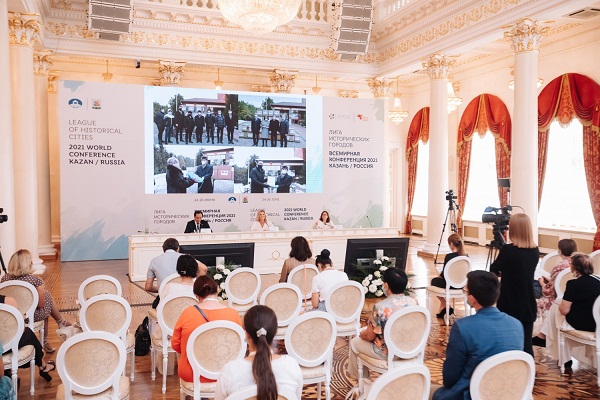
The 17th World Conference of Historical Cities is held in Kazan, Russia on June 25. [Photo/lhc2021.kzn.ru]
The local dialect and culture of Wuxi in East China's Jiangsu province were promoted at the 17th World Conference of Historical Cities, which was held in the Russian city of Kazan on June 25.
Under the theme of "Historical and cultural heritage as the basis of national and regional identity", the conference brought together mayors, member of the League of Historical Cities, as well as experts in the fields of preservation of native languages, folk traditions, and folklore from all over the world.
The conference, which ran from June 24 to 26, attracted 33 speakers from Japan, Russia, France, China, and other countries. A total of 65 cities from 20 countries all over the world were represented at the conference, of which 39 cities were members of the League of Historical Cities.
Liu Lie, deputy director of the Wuxi bureau of culture, radio, television and tourism, attended the conference online on behalf of Wuxi.
Liu's speech was titled "Inheritance and integration: linguistic and cultural diversity". It introduced the origin and development of the Wuxi dialect and also the city.
Wuxi, known as the Pearl of Taihu Lake, sits beside the celebrated lake in southeast Jiangsu. It is a city of affluence and fascinating natural scenery, which is characterized by abundant beautiful rivers, idyllic lakes, unique-shaped caves, bamboo forests, as well as tea gardens.
The Wuxi dialect has a history of over 3,000 years and is part of the Wu culture. Currently, Wuxi locals still use the Wuxi dialect, singing songs and local operas with the native language.
The experience of cities in preserving traditions, customs, languages, and history will serve as a successful example for municipalities in developing new strategies for the preservation of cultural heritage and national identity for future generations, according to Ilsure Metshin, mayor of Kazan.